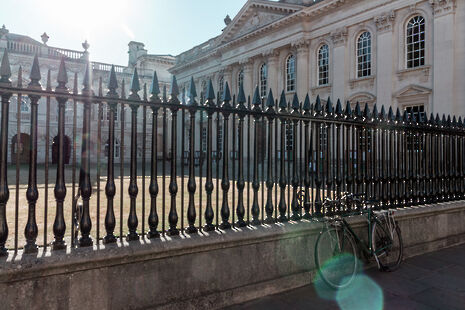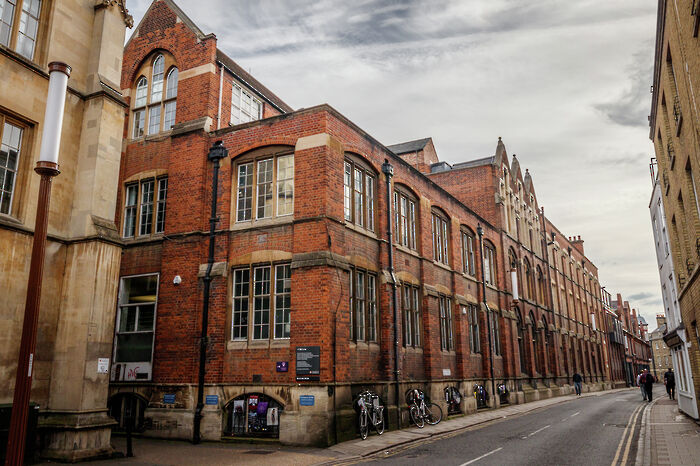University Council member resigns after ‘illegal’ voting rights Grace approved
Dr Alice Hutchings’ resignation comes after an amended Grace to deny postdoctoral research staff voting rights was approved in Regent House last week

Dr Alice Hutchings, a member of University Council, has resigned after the University’s primary governing body, Regent House, voted in favour of an amended Grace to impose a qualifying period of “at least three years continuously” for research associates to be eligible for Regent House membership, including having voting rights.
In the announcement of her resignation on Monday, Hutchings condemned the result as a “damning indication of how researchers in the University are perceived: as second class citizens.” She added, “I feel that members of the Council have acted in breach of this duty, and therefore I cannot remain as a trustee in good faith.”
The original Grace, proposed in June, sought to expand regent membership to all research associates, regardless of faculty and department. The University Council subsequently amended this to impose the qualifying period.
Votes were cast by Regent House members in a ballot between 15th October and 25th October. Of the 783 votes cast, 402 favoured the amended Grace, 344 favoured of the original Grace, while 37 did not favour either.
Hutchings labelled the amendment “discriminatory”, claiming that it violated “not only the Fixed Term Employees (Prevention of Less Favourable Treatment) Regulation, but also the Equality Act… as women are less likely to qualify as Regents”, requesting a review of the amended Grace “on the basis that it is illegal”. Her decision to resign comes two months before she was due to step down from her position on University Council, meaning that she will miss two Council meetings which she otherwise would have attended.
As part of a campaign backed by University Council member Professor Ross Anderson, flysheets were circulated in early October which advocated that Regent House voting members pass the original Grace and vote down its amended form.
Anderson stated the amendments “infringe on [postdocs’] employment rights” and “discriminate against [staff] who have taken a career break to start a family."
In response to the accusations of gender discrimination, the University said: “Neither motion disproportionately disadvantages women. Maternity and other family related leave do not constitute a break in service. Continuity is only broken if for example a staff member resigned following maternity or other family leave."
The added, “voting rights are intended to reflect those who contribute to the Faculty beyond their research commitments… it is correct to say that some postdocs currently with voting rights would lose them, but it would certainly not be all of them.”
Research associates consist of approximately 4,000 postdoctoral staff, many on contracts lasting less than three years. As the amendment does not include a grandfather clause, which would protect the rights of postdocs who were formerly regent members, a large number of these will be disenfranchised.
Hutchings added, however, that even if a grandfather clause were to be added, her arguments opposing the amended Grace would still hold.
Dr Paul Coxton, a Cambridge research associate, took to Twitter to criticise the ballot result, denoting it as “a major punch down by senior established academics against their most junior colleagues.”
“Can an institution truly claim to be inclusive with a decision which will deliberately exclude its largest staff group?”
Updated 7:33pm, Thursday 1st November: This article was updated to note that Dr Hutchings resigned two months before she was due to step down, rather than one month – which the University had originally claimed
 News / Colleges charge different rents for the same Castle Street accommodation2 March 2026
News / Colleges charge different rents for the same Castle Street accommodation2 March 2026 News / News in Brief: waterworks, wine woes, and workplace wins 1 March 2026
News / News in Brief: waterworks, wine woes, and workplace wins 1 March 2026 News / Angela Merkel among Cambridge honorary degree nominees27 February 2026
News / Angela Merkel among Cambridge honorary degree nominees27 February 2026 News / Climate activists protest for ‘ethical careers policy’1 March 2026
News / Climate activists protest for ‘ethical careers policy’1 March 2026 News / King’s hosts open iftar for Ramadan3 March 2026
News / King’s hosts open iftar for Ramadan3 March 2026









